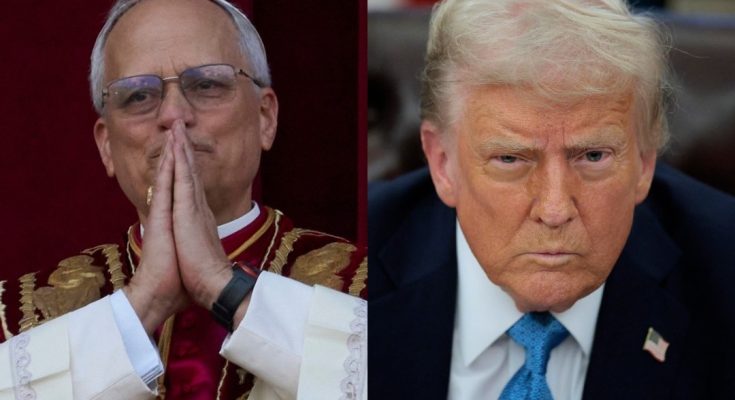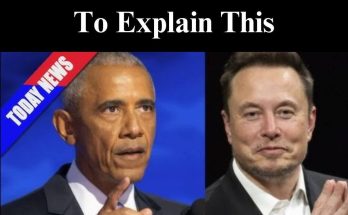In a notable instance of intertwining religious and political discourse, Fox News contributor Raymond Arroyo proposed on Thursday that the recent remarks by Pope Leo XIV, which were critical of President Donald Trump, might not be driven by a political agenda but rather by a spiritual mission grounded in Catholic tradition.
This observation arose as U.S. conservatives began to confront the reality of a pope whose American heritage does not align with the policies of the Trump administration, especially regarding immigration.
During a segment on Fox News hosted by Will Cain, Arroyo, who is also a well-known Catholic commentator for the Eternal Word Television Network, aimed to provide context for Pope Leo XIV’s consistent opposition to anti-immigrant sentiments and his recent critiques of individuals such as Vice President JD Vance on social media.
Arroyo articulated what he described as a theological basis for the pope’s political views: ‘All popes are inclined to advocate for migrants, the impoverished, and peace. Their compassion extends to all of humanity — that is inherent to the role. Jesus would act similarly.’
The dialogue commenced when Cain raised a sensitive inquiry: How does Pope Leo XIV’s perspective for the Church align with that of Pope Francis? Cain recognized that the papacy is not inherently a political role, yet he observed that ideological matters — particularly regarding climate change, diversity, and global equity — have increasingly shaped public views of religious leadership.
With the election of Leo XIV, these ideological debates have surged back into the center of American conversation, particularly within conservative media. The response from MAGA-aligned commentators and influencers was immediate.
The new pope’s record, which features numerous reposts and statements opposing Trump’s refugee bans, the administration’s treatment of immigrant children, and even direct critiques of JD Vance’s interpretation of Christian love, has prompted some right-wing media figures to label him as a “liberal” or “leftist,” despite his deeply traditional foundations.
One of the most controversial instances highlighted by critics was Leo’s choice earlier this year to reshare an op-ed entitled “JD Vance is wrong: Jesus doesn’t ask us to rank our love for others.” This article criticized the vice president for remarks made on Fox News, where he suggested that Christian love should prioritize family and country over the broader world.
For Leo XIV, the Catholic principle of universal love stands in stark contrast to a hierarchical perspective, a stance that aligns with Christ’s teachings yet proves politically contentious in the current environment.
However, it is Leo’s dissent against Trump’s immigration policies that has sparked the most debate. In 2017, Leo openly criticized the refugee bans implemented by Trump’s administration. More recently, he shared content that condemned Trump’s management of a case involving Kilmar Abrego Garcia, a Maryland resident who was unjustly deported to El Salvador and subsequently imprisoned under perilous conditions.
In that post, Leo subtly criticized both Trump and Salvadoran President Nayib Bukele, insisting that moral integrity and justice should take precedence over political convenience. Fox host Sean Hannity, a long-time supporter of Trump, was quick to label the new pope as a product of liberal indoctrination.
Referring to Leo’s condemnation of the practice of detaining immigrant children in cages, Hannity allegedly remarked that there was ‘nothing remotely Christian’ about that perspective — a claim that sharply contradicts the teachings of many Catholic leaders, including Pope Francis and prominent U.S. bishops.
The adoption of traditional papal vestments, frequently favored by conservative Catholics nostalgic for the pre-Vatican II Church, has conveyed ambiguous messages across the ideological spectrum. For many, these visual elements indicated a pope who honors tradition.
However, for others, these symbols were at odds with Leo’s vocal moral advocacy for migrants, economic equity, and a theology rooted in compassion. Central to this entire discussion is a significant question: Can a religious leader’s opposition to policies detrimental to the vulnerable be deemed ‘liberal,’ or is it merely a fundamental aspect of Christian leadership?
Fox News’s portrayal — along with Arroyo’s implication that Leo’s actions embody divine empathy rather than partisan ideology — sought to recast the pope’s perspectives as theological rather than political. Nevertheless, the American media landscape, especially on the right, is unlikely to embrace this distinction without resistance.
Cain concluded the segment by emphasizing that Pope Leo XIV’s position on climate change, diversity, equity, and inclusion will serve as crucial indicators of whether he will follow in Pope Francis’s more progressive footsteps or establish a distinct legacy.
Currently, Leo appears to traverse the same path that Francis endeavored to create — a connection between Catholic doctrine and contemporary global issues. As political and media conflicts persist, Pope Leo XIV’s developing identity may challenge the limits of papal neutrality in the digital era.
In a society where compassion is increasingly politicized and social media posts are permanently recorded, the pertinent question may shift from whether a pope aligns with the left or right to whether the Church can still convey moral truths without becoming embroiled in partisan conflicts.
In this light, Arroyo’s comment on Fox News — that ‘Jesus would do the same’ — seems less a defense and more a subtle caution. For Pope Leo XIV, the true test may lie not in opposing authority, but in steadfastly adhering to the Gospel in a world that categorizes love itself as an ideology.



